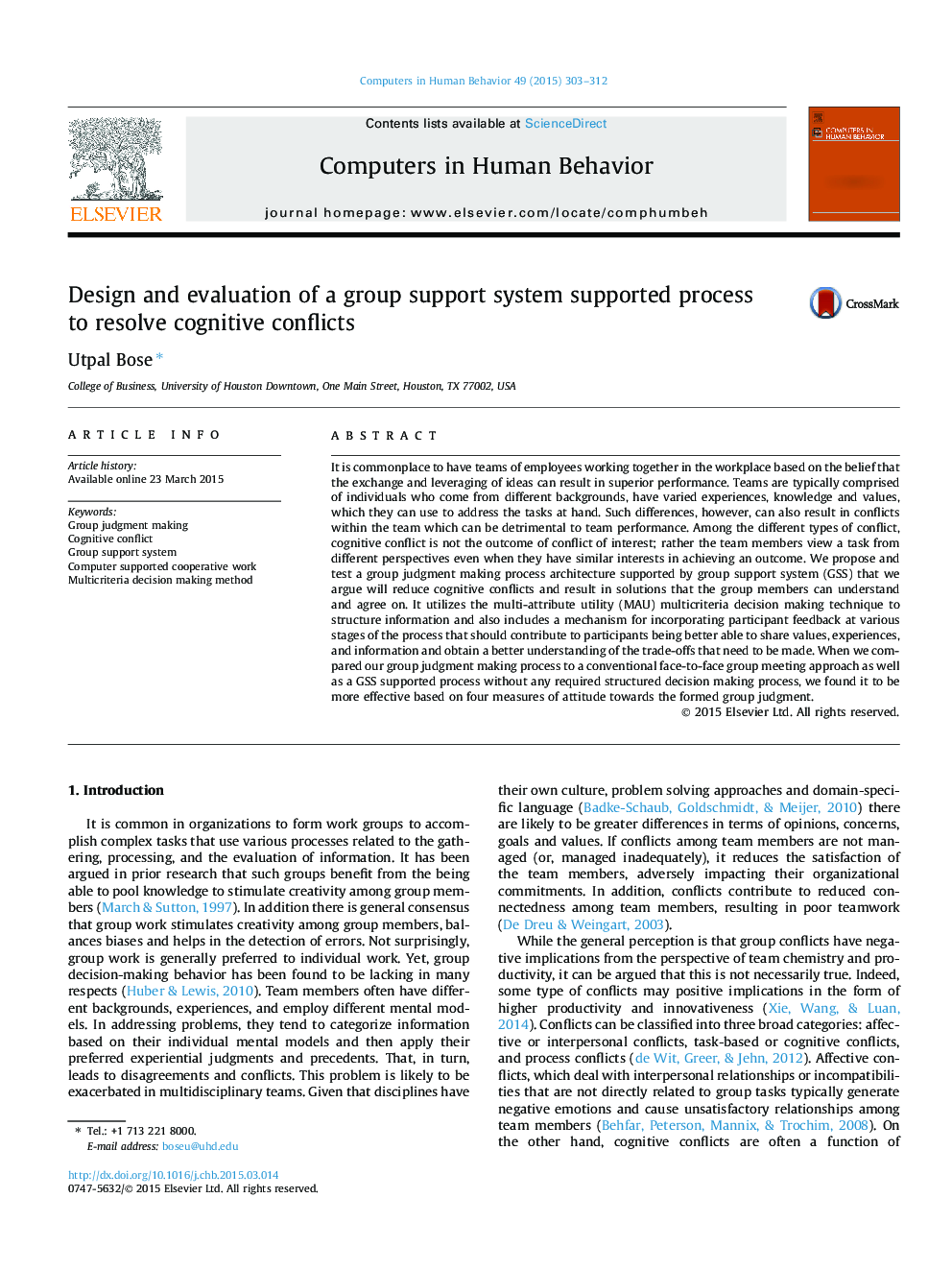| Article ID | Journal | Published Year | Pages | File Type |
|---|---|---|---|---|
| 350330 | Computers in Human Behavior | 2015 | 10 Pages |
•We model a group support system based process to improve group judgments.•The model relies on structured communication and cognitive feedbacks.•It uses the multi-attribute utility multicriteria decision making technique.•Our model enhanced problem solving ability.•Our model was perceived to be more effective overall than the traditional method.
It is commonplace to have teams of employees working together in the workplace based on the belief that the exchange and leveraging of ideas can result in superior performance. Teams are typically comprised of individuals who come from different backgrounds, have varied experiences, knowledge and values, which they can use to address the tasks at hand. Such differences, however, can also result in conflicts within the team which can be detrimental to team performance. Among the different types of conflict, cognitive conflict is not the outcome of conflict of interest; rather the team members view a task from different perspectives even when they have similar interests in achieving an outcome. We propose and test a group judgment making process architecture supported by group support system (GSS) that we argue will reduce cognitive conflicts and result in solutions that the group members can understand and agree on. It utilizes the multi-attribute utility (MAU) multicriteria decision making technique to structure information and also includes a mechanism for incorporating participant feedback at various stages of the process that should contribute to participants being better able to share values, experiences, and information and obtain a better understanding of the trade-offs that need to be made. When we compared our group judgment making process to a conventional face-to-face group meeting approach as well as a GSS supported process without any required structured decision making process, we found it to be more effective based on four measures of attitude towards the formed group judgment.
